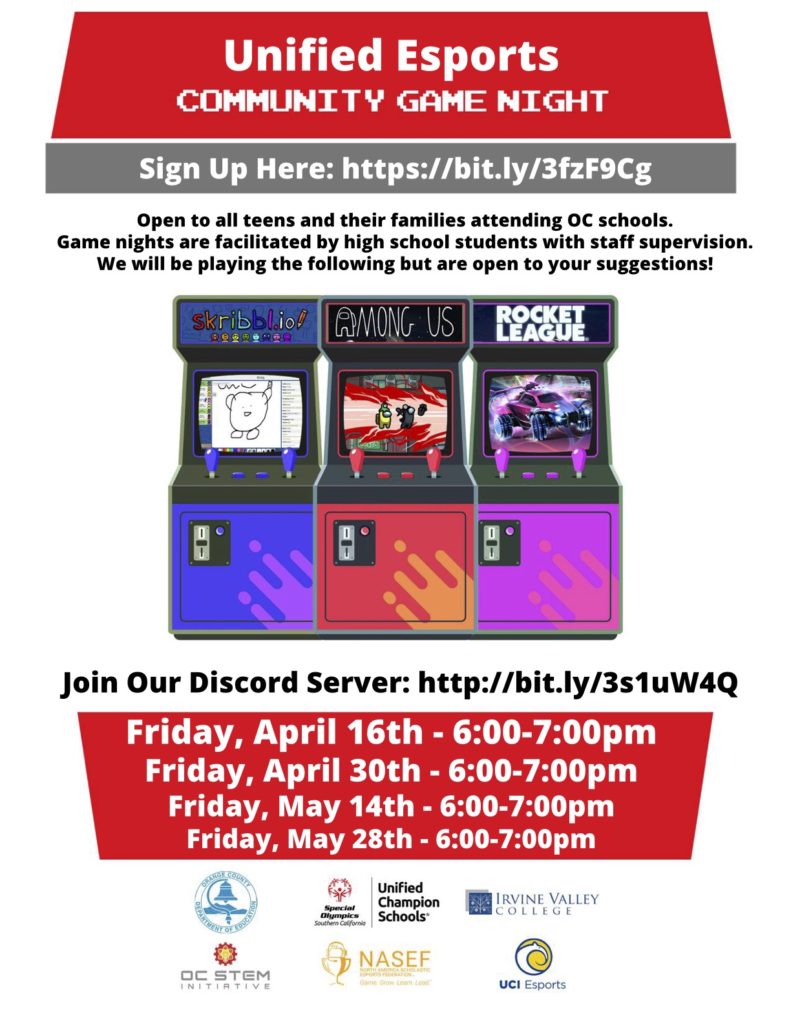Orange County high schoolers are invited to build friendships while playing popular games online during a series of upcoming gaming nights.
The North America Scholastic Esports Federation is piloting its new Community Game Nights initiative to promote inclusivity and bridge accessibility gaps. Working with OC STEM, OCDE, Special Olympics SoCal, UCI Esports and IVC Esports, the OC-based federation is encouraging students of all abilities to bond through shared experiences by playing and learning on the same teams in hourlong sessions.
Organizers say it’s a strategy embraced by the Special Olympics Unified Champion Schools program, which brings together youth with and without intellectual disabilities to build communities, reduce bullying and pursue healthy choices.
Jorrel Batac, an OCDE curriculum specialist and director of the NASEF Scholastic Fellow Program, credited Kara Johnson, a special education teacher at Trabuco Hills High School, for the inspiration.
“We saw this as a creative way to not just bring the special education population into the community, but the general population around gaming and esports together,” Batac said. “The pandemic has taken a lot of those in-person opportunities away from our community, and it’s important that we continue bringing people together in creative ways until meeting in-person is viable once more.”
Community Game Nights are currently open to teens and families from Orange County schools who register at https://bit.ly/3cEKHcH. Here’s a list of the dates and times:
- Friday, April 16 from 6 to 7 p.m.
- Friday, April 30 from 6 to 7 p.m.
- Friday, May 14 from 6 to 7 p.m.
- Friday, May 28 from 6 to 7 p.m.
Not just about gaming
Recognizing that not everyone has access to expensive gaming devices, all of the unified esports sessions will rely on cross-console and free-to-play games such as Rocket League and Among Us.
But Batac stressed that the gaming nights aren’t just about gaming. They will also offer near-peer mentorship opportunities by recruiting students and educators at the collegiate level to participate.
“Providing students with a mentor that is closer in age to them gives them more confidence to interact,” he said. “It’s one thing for an adult to tell them there are all these cool opportunities, but it’s entirely another thing if it’s a student a few years ahead of them at a nearby college sharing their potential career pathways, and they’re actively engaging in an esports program.”
NASEF was first established in 2017 with initial funding from the Samueli Foundation, though it now operates as an independent nonprofit. Collaborators include OCDE, UCI and other partners seeking to leverage the popularity of video games to promote collaboration, engagement, problem-solving and other skills.
For more information, visit www.nasef.org.

